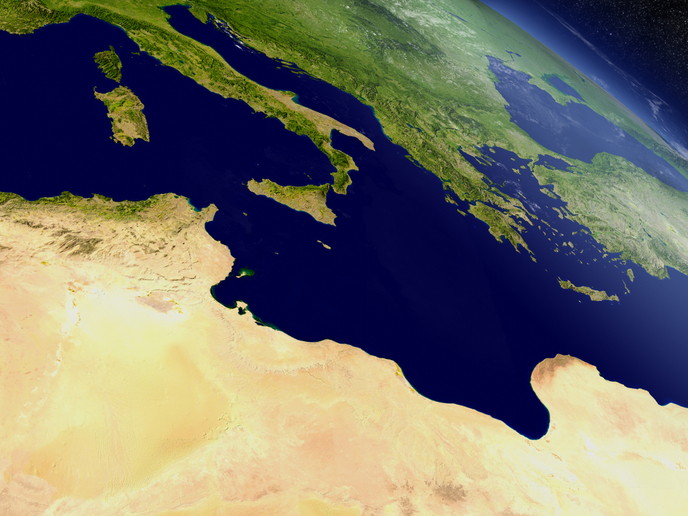Inclusive visions for a new EU partnership with the Mediterranean
When the EU conceives of Mediterranean stakeholders, policy instruments and policy issues, its standpoint often marginalises local perspectives and needs, while not sufficiently considering the role of other global actors. This can result in fragmented and incoherent policies, constructing the region as both threat and opportunity, as a series of borders rather than a shared space. The MedReset project envisaged a more reflexive EU, devising more inclusive, flexible, and responsive policies. After analysing EU discourse, MedReset applied a novel methodology to create a conceptual map of the Mediterranean as it exists in the lived experiences of its stakeholders (from civil society, diplomacy and the state, amongst others), leading to policy recommendations. Decentred methodology When it comes to ‘framing’ the Mediterranean region and its issues, MedReset departed from the typical Euro-centrist approach by adopting a bottom-up methodology. The research explored four crucial policy areas: ‘political ideas’, ‘agriculture and water’, ‘industry and energy’ and ‘migration and mobility’, against a three-dimensional framework of stakeholders, policy instruments and policy issues. There were two rounds of consultations, with EU decision makers and stakeholders in Lebanon, Morocco, Egypt and Tunisia. The first round followed a loose interview guide, with the results forming the basis for developing hypotheses, tested in the second structured round of interviews. In tandem, the team conducted a survey (in-depth interviews and focus groups) with ‘elites’ (policymakers, experts, journalists, academics, doctors, etc.) in Egypt, Israel, Iran, Turkey, Saudi Arabia, Qatar, Tunisia, Lebanon and Morocco. In this way, the perceptions and priorities of Southern shore partners were at the heart of the research, rather than being only marginally included. In all, the team interviewed around 700 people. “Our new decentring methodology invited EU stakeholders (policymakers and civil society) to position themselves in relation to structured inputs from Mediterranean stakeholders,” says Dr Daniela Huber. “This approach gave Southern stakeholders a voice, generating new insights about how the EU could become more inclusive (of various stakeholders), flexible (in terms of policy instruments) and responsive (in terms of policy issues and peoples’ needs).” MedReset found that the EU is often viewed as being invisible, with policies frequently unknown or overshadowed by those of Member States, resulting in seemingly incoherent and sometimes contradictory policies – especially regarding democracy, human rights and social equality. There was additionally perceived to be a substantial gap between Southern policy expectations and actual EU outputs. While EU aid is viewed more positively than that of other actors, existing civil society assistance is not considered sufficient if not accompanied by political pressure. Additionally, EU rhetoric predicated on the notion of universal rights as a European phenomenon was rejected, as it denies local actors their own agency. Two sides of the same coin Could it be that increased EU awareness about its role in various Mediterranean policy areas might also inspire reflection about policies within the EU itself? “Several of our European interviewees pointed out the importance of reflexivity on social justice issues within the EU. This is of utmost importance in times of rising nationalist populism,” Dr Huber says. The team will publish four major policy reports, with the policy recommendations and infographics already available. The results of the ‘elite’ survey are being published in an open access book and the consortium of 12 research institutions is also working together on another book highlighting the added value of this research.
Keywords
MedReset, Mediterranean, policies, democracy, human rights, social equality, social justice, political ideas, agriculture and water, industry, energy, migration, mobility, EU







